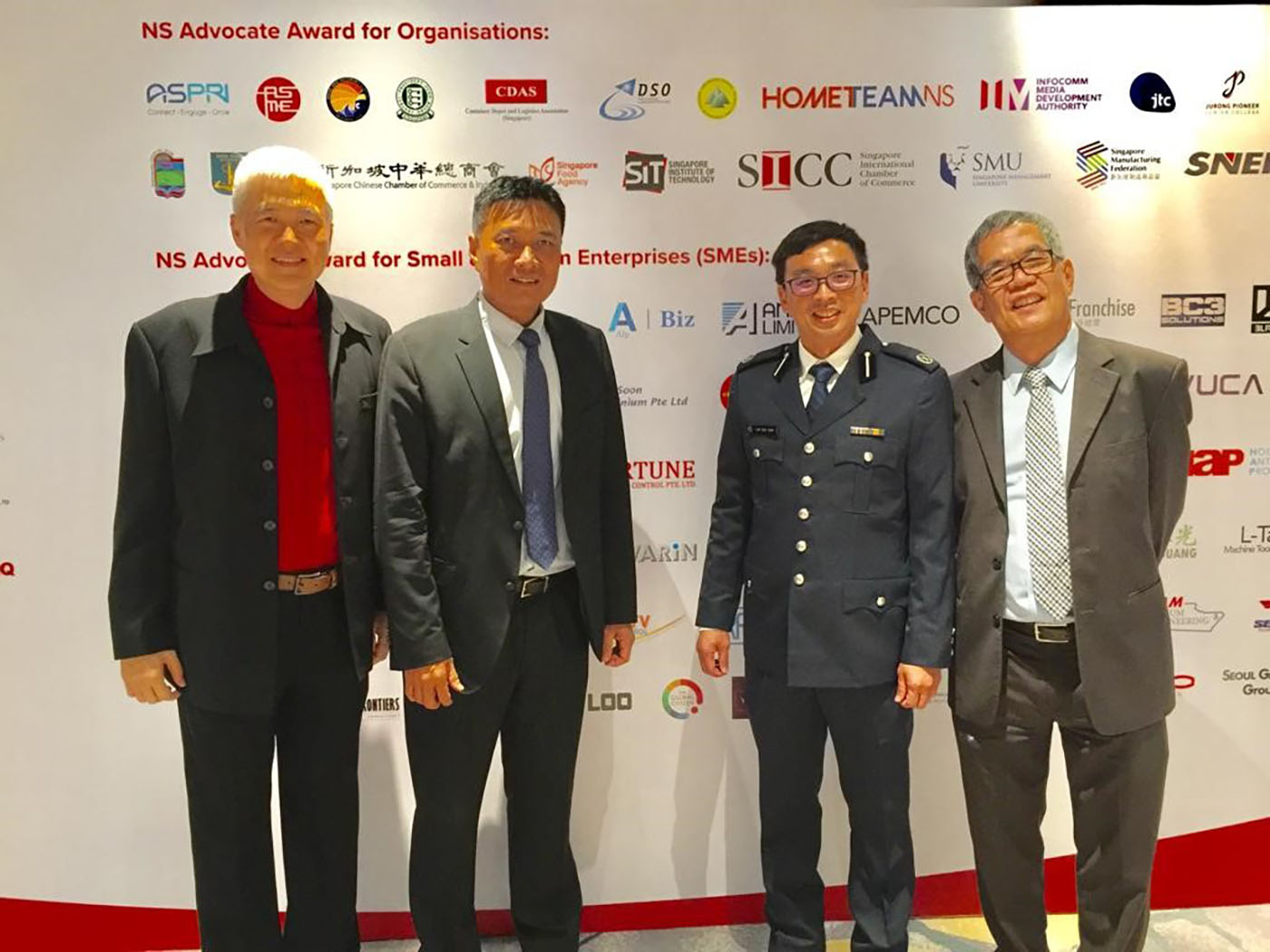DAC (NS) Lim Kok Hwa relied on strong bonds with his teammates during major security operations and a dramatic rescue. Now, he wants to help generations of National Servicemen to reinforce these ties.
TEXT: KEENAN PEREIRA
PHOTOS: HOMETEAMNS, DAC (NS) LIM KOK HWA
Close ties within a unit can make a huge difference during day-to-day police work, where stress can build up in an instant. This was evident early on in DAC (NS) Lim Kok Hwa’s career in the Singapore Police Force (SPF), when his team was mobilised to handle a case initially thought to be an individual suicide.
To their shock, the situation on the ground was far more sinister. It turned out that the suicide victim had actually stabbed a family member before taking his own life. “What we initially thought would be an investigation quickly became a mission to save the life of the family member who was left bleeding from serious injuries in the flat, which was stressful and tiring. Thankfully, it was a successful one, and we got through it knowing we were all in it together.”
Such unity is also important during large-scale security operations for major events such as the National Day Parade (NDP). He recalls his experience at the NDP 2000, which marked Singapore’s 35th year of independence. “We had a mobile column at the Padang for the first time. The space is much more open than the National Stadium, where the parade was previously held, so we had to consider different security concerns. We had to plan safeguards against vehicles ploughing into the audience,” he explains. “Teamwork got us through those months and months of planning,” he adds.
His biggest takeaway from the experience? “Strong foundations inspire trust as a team and trust in the system. Your men will feel comfortable to share their problems, which you can then step in to rectify,” shares DAC (NS) Lim, who is currently the Director, Professional Officers Division at Singapore Institute of Technology.

WORKING — AND PLAYING — AS A UNIT
DAC (NS) Lim has amassed his share of wisdom from being involved in SPF’s operations for more than 20 years and now carries this into his latest role as the L Division’s NS Commander. Here, the 49-year-old leads about 2,000 men at different life stages. “You’ve got those who are just starting their journeys as National Servicemen and others who are well into their reservist cycles,” he shares, adding that it is crucial to bring these different groups together to develop resilient bonds.
Such connections can be nurtured beyond reservist training sessions and recalls, through cohesion activities and those organised by partners such as HomeTeamNS. He maintains that the success of cohesion activities is as much dependent on the participants as it is on the organisers. “They have to come with an open mind and be eager to get to know their fellow men,” DAC (NS) Lim says. “Our NSmen are very vocal in their feedback about our events, which is useful, as it allows us to plan and do better the following year,” he adds.

DAC (NS) Lim also stays close to the ground in his other roles, as the chairman of the HomeTeamNS Balestier Executive Committee and the co-chairman of the HomeTeamNS Strategic Review Committee.
Summing up the Executive Committee’s function, he says, “My team’s goal is to make our HomeTeamNS clubhouse attractive to National Servicemen and their families and to provide services and programmes that add value to them.” The Strategic Review Committee adopts a more big-picture view, looking at trends to gauge how HomeTeamNS can better serve its members, through new initiatives or even clubhouses. “Gathering feedback from National Servicemen is very important in both these roles,” he shares. HomeTeamNS clubhouses, he adds, help foster camaraderie within the organisation. “They are spaces for families to gather, for National Servicemen to train for IPPT together and even unwind as a team.”

Moving forward, he reveals that the team is considering new clubhouse programmes which allow National Servicemen from previous generations to reconnect with their unit mates from, say, 30 or 40 years ago. “These are friendships that truly last. After all, NS friends understand your character and temperament very well. You’ve lived with them in close quarters and have been with them through thick and thin.”
FAVOURITE FILE
Detective stories: “When I was younger, I read Sherlock Holmes books, which have been made into many TV shows and movies. But I haven’t kept up with them.”
Exercise: “Running helps me calm my mind and think about strategic issues at work. Not to mention, it helped with my IPPT back when I still served those obligations. I run around 5-10km every day.”
Lesson from his SPF career: “Always prepare for the unexpected. Some of my most memorable missions in SPF started out a certain way and then turned around completely. That happens in life too.”
Like our stories? Subscribe to our Frontline Digital newsletters now! Simply download the HomeTeamNS Mobile App and update your communication preference to ‘Receive Digital Frontline Magazine’, through the app settings.







